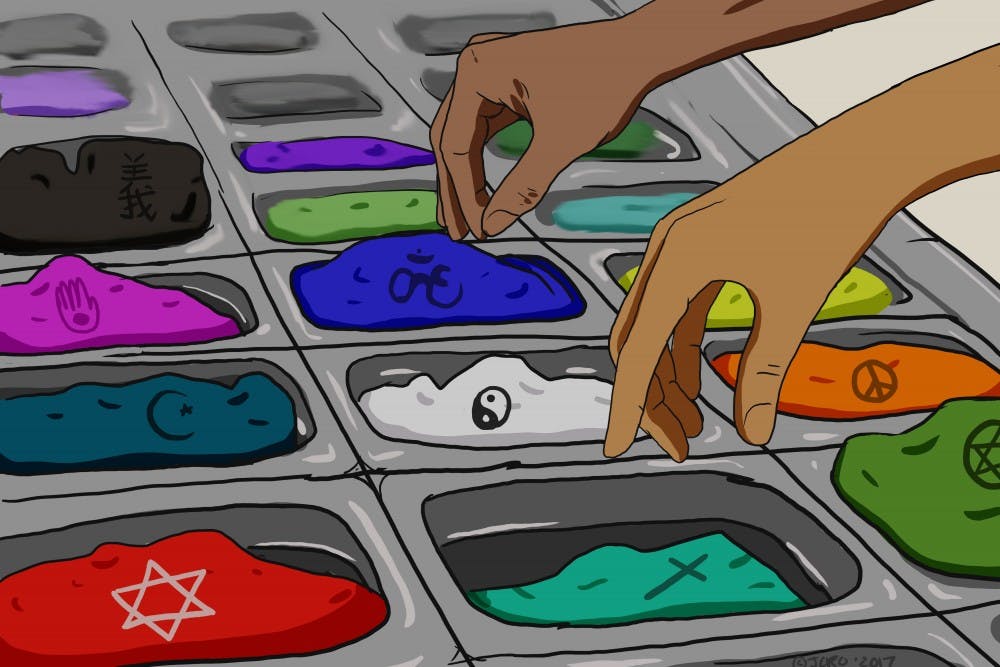A few years ago, I believed that people should not wear hairstyles or clothing associated with a culture outside of their own.
Cultural appropriation has been a hot topic for the last few years, especially among our generation.
However, I come from a multicultural background — both of my parents are multiethnic and, per my parents' wishes, I re-evaluated my own thoughts when it comes to equality and cultural appreciation.
I understand what cultural appropriation means and how it affects minorities. As a minority myself, I completely understand why minorities are upset when white people get praise for doing a dance or styling hair a way that minorities have been doing for years.
However, I can guarantee you that I wouldn't be alive today if it weren't for the sharing of cultures. For example, I'm half Latina. The entire history of Latin America is made up of different people sharing cultures.
I think it would be ironic if I got mad at people for sharing cultures considering that my background is multicultural.
However, there's no denying that cultural appropriation is a real problem.
Cultural appropriation, as described by Neal Lester, a foundation professor of english and founding director of Project Humanities at ASU, is when, "the dominant group exploits a minority group without permission or any form of reciprocation for the minority group."
"Cultural appropriation is for performance where as appreciation is simply enjoying aspects of another culture," Lester said. "One can enjoy another's culture without trying to imitate it."
I get it. When white people wear cornrows or bantu knots they are praised for being edgy and unique. When black people wear them it can be seen as ghetto or trashy.
As a half-black woman myself I understand black people's frustration. It can make black people feel as though their own hair texture and styles are not loved on them.
However, this does not mean that all cultures can engage in cultural appropriation.
"Black people can be guilty of cultural appropriation if they take a hairstyle from a different culture that (they) don't understand," Lester adds.
At the end of the day, we all take from different cultures. In music, slang, dance moves, etc.
"Cultural appropriation is not a black and white issue," Lester said. "We cannot use a checklist to determine whether something is cultural appropriation or not. One must decide for themselves if what they are doing is appropriate."
I couldn't agree more. At the end of the day, we all must live our own lives. Since we all have our reasons for appreciating cultures, we shouldn't attack others if we suspect they are appropriating another's culture.
Maybe they're mixed. Maybe they're showing solidarity with a minority group. We should not just assume they are appropriating another's culture because they do not "look" like a particular ethnicity.
My only suggestion regarding how to avoid appropriation is to understand why you decide to wear a cultural item. If people question you, make sure you have an answer. Hopefully you understand that culture and the meaning of what you are wearing.
However, one example that is blatantly appropriation is when one wear an article of clothing belonging to another person's religion. This is only appropriate if you were invited to a religious celebration or plan to convert.
In most cases, however, I think most arguments about cultural appropriation tire themselves out.
There are always exceptions. There are always ethnically ambiguous people who don't necessarily look like their ethnicity.
There are many reasons why someone might wear an aspect of another's culture. And most people do it for benevolent reasons.
"Cultural appropriation only refers to extreme cases like blackface or the Washington Redskins. Cultural appropriation is for not gray areas," Lester said.
Thus, if you feel someone is appropriating another's culture, just ask them. Conversation is good. You should ask someone their reasons before you accuse them.
It should be noted that cultural diversity and cultural appreciation is a good thing.
It is what makes our country a melting pot. My parents were raised in the 1960s south and dealt with segregation all the way up to their college years. So to have made this much progress in our society and now to say that one cannot wear a certain hairstyle because they are not black is counter-productive to all the progress we have made.
Reach the columnist at miharri1@asu.edu or follow @IdalisHarris on Twitter.
Editor’s note: The opinions presented in this column are the author’s and do not imply any endorsement from The State Press or its editors.
Want to join the conversation? Send an email to opiniondesk.statepress@gmail.com. Keep letters under 500 words and be sure to include your university affiliation. Anonymity will not be granted.
Like The State Press on Facebook and follow @statepress on Twitter.




